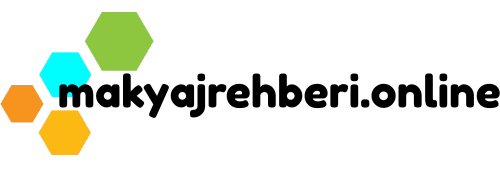If you want a practical roadmap that helps you grow in any industry, start by committing to learn how to advance your career through online training with purpose and structure.
This guide shows you how to choose the right courses, stay motivated, and translate credentials into real promotions or new roles.
You will see the benefits, the common obstacles, and the platforms that deliver strong outcomes. Use it to upgrade skills that employers value most today.

Why Online Training Accelerates Your Growth
Online training puts flexible, affordable learning within reach, which means you can develop in-demand skills without pausing your career.
The key is to align course choices with your professional goals and to practice consistently.
In this section, you will see why the online format removes traditional barriers and speeds up advancement. Each reason below shows how digital learning converts time into measurable results.

Flexibility That Fits Your Schedule
You learn on your terms, which lets you balance work, family, and study without sacrificing performance in any area.
Short modules and mobile access turn commutes, lunch breaks, and evenings into productive sessions. This rhythm compounds quickly and adds up to full certifications faster than you expect.
Flexibility also reduces burnout because you can adjust intensity during busy weeks and increase it when your calendar is lighter.
Lower Costs With Clearer Returns
Online programs often cost less than campus alternatives, especially when you factor in commuting, materials, and time away from work.
Many platforms run frequent discounts or provide subscription models, which lower the barrier to sampling new subjects.
Because you keep earning while you study, the payback window is shorter. You can direct savings into exam fees or professional memberships that strengthen your resume.
Faster Skill Acquisition Aligned To Job Needs
Digital courses are updated more frequently than traditional curricula, which keeps content close to what employers use.
You can learn the newest tools and frameworks as soon as they appear, then apply them at work in near real time.
Managers notice when you solve problems with fresh methods. That visibility often leads to stretch assignments that accelerate promotions.
Measurable Credentials That Signal Growth
Certificates, badges, and verified projects help you present progress in a format recruiters recognize quickly. When tied to real deliverables, these credentials validate both theory and execution.
You can showcase code repositories, design portfolios, or analytics dashboards that prove capability. These assets strengthen salary negotiations by demonstrating direct business impact.
Benefits Of Online Training For Career Advancement
Beyond flexibility and cost, online training delivers professional benefits that compound over time.

You gain access to global faculty, peer networks, and career services that keep you accountable.
The advantages below show how the right program can shift your trajectory. Use them to build a case for sponsorship with your manager or to set a personal development plan.
Job Readiness Through Hands-On Projects
Project-based courses help you practice with real data, real tools, and realistic timelines. You finish with artifacts that mirror workplace outputs, such as reports, prototypes, or campaign plans.
These deliverables make portfolio reviews easier for hiring managers. They also give you talking points for performance reviews and promotion boards.
Credibility Through Recognized Partners
Many platforms partner with leading universities and companies, which lifts the signaling value of a certificate.
Brand recognition opens doors in applicant tracking systems and reduces skepticism in interviews.
When a credential maps to an industry exam, you get a clear path from coursework to a standardized qualification. That alignment shortens the distance between learning and advancement.
Continuous Learning That Keeps Skills Current
Technology, compliance, and customer expectations evolve quickly, so a one-time degree is not enough.
Online training encourages a habit of ongoing improvement that keeps your knowledge fresh.
You can subscribe to learning paths that renew annually and track required updates. This cycle protects your employability and keeps your team competitive.
Career Mobility Across Roles And Sectors
Digital learning lets you test adjacent roles without risk, which is valuable if you want to pivot. You can sample product management, data analytics, cloud engineering, or UX design, then go deeper where you excel.
Microcredentials stack toward bigger programs, so each step builds momentum. That structure supports both specialization and broadening.
How To Choose The Right Online Program
Selection matters because not all courses deliver equal outcomes. Start by clarifying your destination role and the skills it demands, then work backward to a learning path.

In this section, you will see a simple decision framework that keeps your choices focused. Use the criteria below to avoid common pitfalls and to protect your time.
Align Courses With Role-Based Competency Maps
Identify the exact competencies required for your target role, such as SQL querying, stakeholder communication, cloud security, or brand strategy.
Choose courses that map directly to those skills and list clear learning objectives. Favor programs that publish assessment rubrics and capstone criteria. This alignment ensures every hour of study advances a measurable capability.
Verify Instructor Credibility And Course Quality
Look for instructors with both teaching experience and industry practice, supported by high completion and satisfaction scores.
Review sample lectures to confirm clarity and pacing that match your learning style. Check whether assignments receive substantive feedback rather than simple auto-grading. Quality control at this level predicts stronger outcomes.
Prioritize Assessments And Real Portfolio Output
Select programs that require applied projects, peer reviews, or proctored exams. These components raise the bar and replicate real work pressure.
You want deliverables that interviewers can evaluate quickly, such as code notebooks, case study decks, or interactive dashboards. Strong artifacts shorten interviews because they answer capability questions in advance.
Confirm Career Support And Community Access
Prefer platforms that include resume reviews, mock interviews, mentor chats, and active forums.
Community structures provide accountability and momentum during difficult modules. Alumni groups also surface job leads and role-specific tips. These networks become an asset long after the course ends.
Build A Sustainable Learning Plan That Delivers Results
A strong plan protects your time and keeps you moving when motivation dips. The goal is to convert consistent effort into real promotions, not just completed certificates.

This section provides a routine that busy professionals can maintain. Apply the methods below, then measure your progress every quarter.
Set Weekly Study Blocks And Micro Goals
Reserve fixed times for study, such as three 45-minute sessions per week. Break large modules into micro goals that you can finish in one sitting, which builds quick wins.
Track progress with a simple dashboard that shows lessons completed and hours invested. Consistency beats intensity because it compounds.
Apply New Skills At Work As You Learn
Translate each lesson into a workplace experiment within seven days. Automate a report, refactor a process, or test a new campaign metric so your learning sticks.
Share outcomes with your manager to demonstrate impact and gather feedback. This loop turns study time into recognized performance gains.
Document Evidence And Refresh Your Portfolio
Capture screenshots, code snippets, and before-and-after metrics for every applied project. Organize them into a portfolio with short problem statements, approaches, and results.
Update your resume and professional profile quarterly to reflect new outcomes. Clear documentation proves growth when opportunities arrive.
Review Progress Quarterly And Adjust The Path
Schedule self-reviews that compare your progress with target competencies. Retire courses that no longer serve your goals and replace them with higher leverage modules.
Seek mentorship when a topic stalls and consider live cohorts for accountability. Iteration keeps your plan relevant as your role evolves.
Top Websites For Online Training That Advance Your Career
The strongest platforms combine recognized credentials, hands-on practice, and career services.

This section highlights widely trusted options used by employers across industries. Each platform below serves a different learning style or career stage. Match the strengths to your goals and budget so you can move quickly.
Coursera For University-Backed Credentials
Coursera partners with global universities and companies to deliver specializations, professional certificates, and degree pathways. Many programs include graded projects and capstones that simulate real work.
Learners can audit content or enroll for verified certificates depending on goals. Career services and financial aid options support accessibility.
edX For Rigorous MicroMasters And Professional Certificates
edX hosts university-level courses that scale into MicroBachelors, MicroMasters, and professional certificates. Programs often include proctored assessments and instructor-paced cohorts.
Technical tracks in data, cybersecurity, and cloud are updated to reflect current tools. The platform’s credit pathways help you convert progress into formal credentials.
LinkedIn Learning For Role-Based Skill Paths
LinkedIn Learning organizes content by job titles and competencies, helping you target specific promotions. Quizzes and project files reinforce application rather than passive viewing.
Integration with your professional profile showcases completed courses automatically. Recommendation algorithms surface the next logical module for your path.
Udemy For Practical, Tool-Focused Mastery
Udemy offers a vast catalog with deep dives into specific tools and frameworks at accessible prices. Course reviews and preview videos make quality screening straightforward.
Many instructors update content frequently as software changes. Lifetime access supports ongoing reference after you complete a module.
Google Career Certificates For Job-Ready Tracks
Google Career Certificates focus on job-ready roles like data analytics, UX design, project management, and IT support.
Programs are designed around practical assessments and portfolio artifacts. Employer consortiums recognize these credentials during hiring. Structured pacing and clear rubrics help first-time online learners stay on track.
Pluralsight For Technology And Engineering Depth
Pluralsight specializes in software engineering, cloud, data, and security, with skill assessments that calibrate your starting point.
Role IQ and Skill IQ metrics guide your next steps with precision. Hands-on labs and sandboxes allow safe practice with enterprise tooling. Annual plans help teams standardize development pathways.
IBM SkillsBuild And Microsoft Learn For Enterprise Tools
IBM SkillsBuild and Microsoft Learn provide free and low-cost pathways covering cloud, AI, cybersecurity, and productivity suites.
Interactive labs and sandboxes accelerate hands-on familiarity. Many modules align with vendor certifications that employers recognize. These ecosystems are ideal if your organization already uses their stacks.
Conclusion
Advancing your career through online training works when you align courses with real job skills, practice consistently, and deliver measurable results. You saw why flexible schedules, lower costs, and current content drive rapid progress, and you learned how to select high-quality programs that align with your goals.
The platforms highlighted here provide credible credentials and hands-on practice that employers understand. Commit to a simple learning plan, apply each lesson at work, and review progress quarterly so your new skills turn into promotions and offers.












